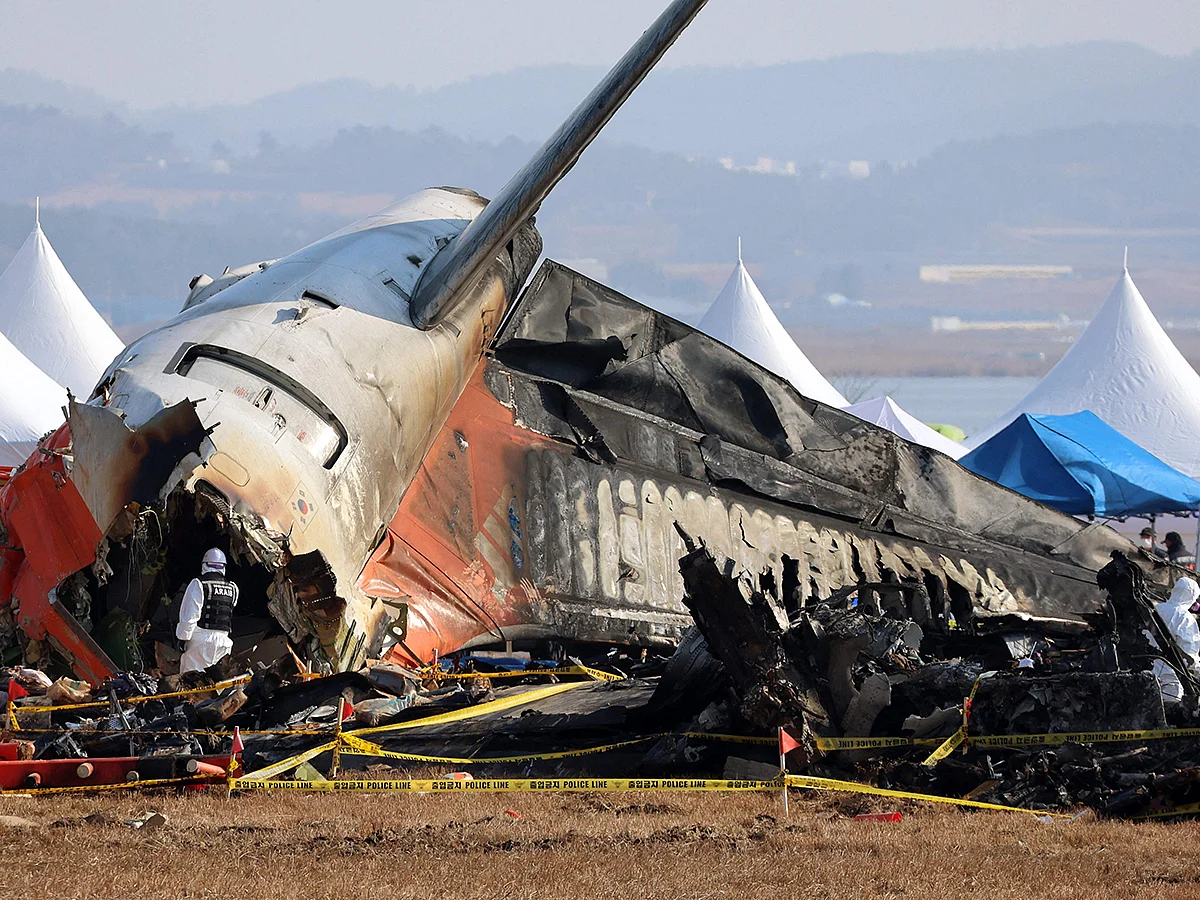South Korea’s deadly Jeju Air crash: Did pilots shut down the wrong engine?
Cockpit missteps? Families push back as probe finds pilots shut down working engine

South Korea’s probe into the December 29 Jeju Air crash, which killed 179 people, has found “clear evidence” the pilots mistakenly shut down the working left engine after a bird strike, instead of the more-damaged right one.
Cockpit recordings, flight data and wreckage analysis show emergency protocols were misapplied. No pre-existing engine faults were found. Investigators shared findings with victims’ families in a private briefing.
Duck remains were found in both engines. Jeju Air is cooperating, but Boeing and CFM remain silent. A final report is expected by June 2026. Meanwhile, grieving families are demanding answers—questioning how such a fatal error occurred and whether deeper systemic flaws were missed.
Here’s a look at the tragic Jeju Air crash and why families are protesting the investigation’s findings:
What happened on Jeju Air Flight 2216?
On December 29, 2023, Jeju Air Flight 2216 crashed while attempting an emergency landing at Muan Airport in South Korea. The Boeing 737-800 jet overran the runway, belly-landed at high speed, and collided with a concrete embankment, killing 179 of the 181 people on board.
Only two survived, making it the deadliest air disaster on South Korean soil.
What triggered the emergency?
A severe bird strike occurred just before landing. Preliminary findings suggest that the right engine was critically damaged after colliding with birds—specifically ducks. Both engines were later found to contain bird remains.
Did the pilots shut down the wrong engine?
According to a Reuters report citing unnamed investigators, cockpit voice recordings and flight data show that the pilots shut down the left engine, which had sustained less damage. Investigators believe this misstep may have contributed to the crash.
The left engine’s shutdown also reportedly disabled the Integrated Drive Generator (IDG), a critical system that powers flight instruments, landing gear, and the black box recorders.
Why are the families and pilots' union protesting?
Families of victims and the pilots' union have strongly criticised the Aviation and Railway Accident Investigation Board (ARAIB) for appearing to place premature blame on pilot error. A scheduled press briefing was cancelled after families objected to language in the interim report that suggested final conclusions.
The union argues that the investigation:
Lacks transparency and crucial technical details.
Ignores systemic and airport infrastructure failures, including the presence of the concrete berm the plane struck.
Oversimplifies the accident as pilot error without presenting evidence that the plane could have landed safely on one engine.
What else are critics saying?
Families want full public release of flight recorder and engine data.
They claim the draft report "makes scapegoats" of the pilots and dead birds.
Legal representatives argue the findings prematurely absolve airport authorities and broader systemic failures.
What are investigators doing now?
ARAIB confirmed that both engines were sent to CFM International for further analysis. The investigation also includes support from:
US National Transportation Safety Board
US Federal Aviation Administration
France’s Bureau of Enquiry and Analysis for Civil Aviation Safety
Officials say more public hearings and input from victims’ families will be included before the final report is released in June 2026.
Why this matters
Most aviation disasters result from a combination of technical, human, and systemic errors. Critics say the current narrative risks overlooking vital factors — from cockpit confusion during high-pressure emergencies to airport infrastructure hazards — by pinning responsibility too early and too narrowly.
What’s next
Facing pressure from victims’ families and pilots’ union, ARAIB will expand its inquiry beyond pilot error to include infrastructure and systemic issues. The board plans public hearings, further consultations, and technical investigations with international experts. The final report is expected by June 2026, promising a thorough and transparent account.
With inputs from Agencies
Network Links
GN StoreDownload our app
© Al Nisr Publishing LLC 2026. All rights reserved.